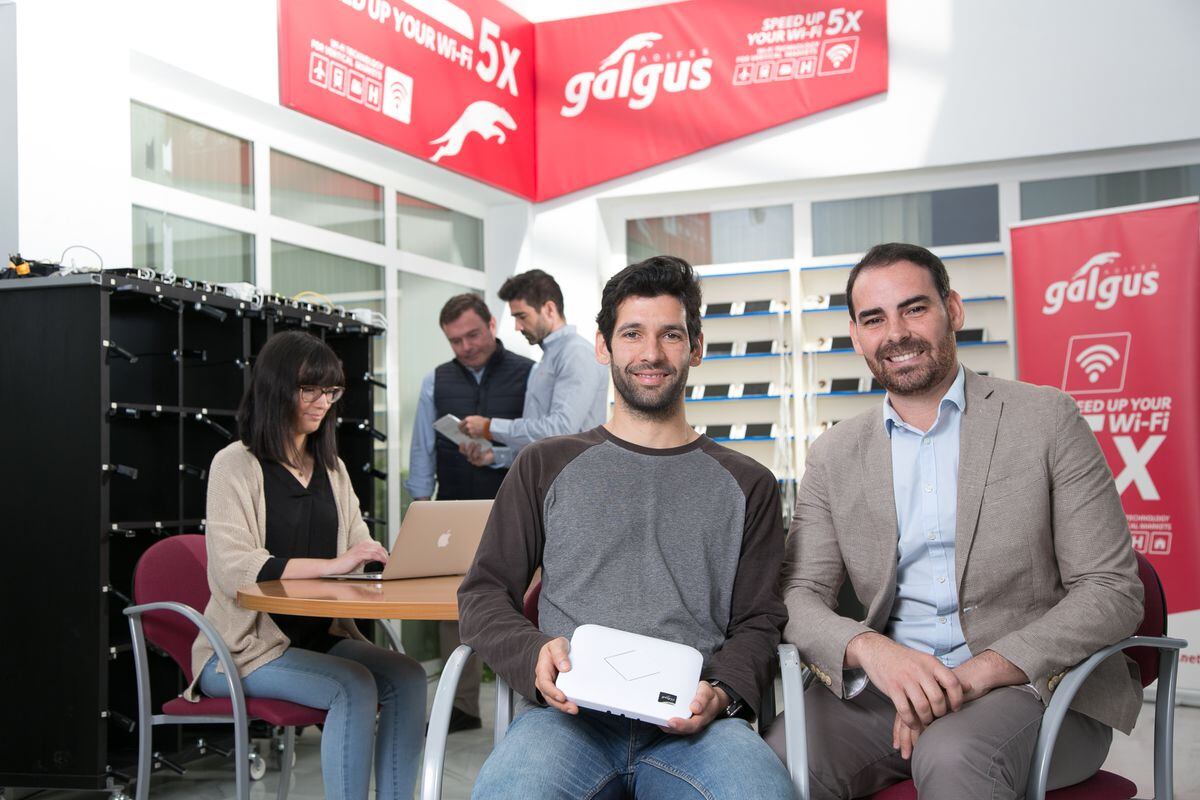A third of the planes that offer Wi-Fi have Spanish technology developed by Calcus. In their first major contract, in 2014, they won North American multinationals, and finally, the largest tender in Europe in 2022, the corporate network of the Junta de Andalucia (with 10,500 buildings and 50,000 access points), planted the face. Big brands like Huawei or Cisco….
Subscribe to continue reading
Read without limitations
A third of the planes that offer Wi-Fi have Spanish technology developed by Calcus. In their first major contract, in 2014, they won over North American multinationals, and finally, the largest tender in Europe in 2022, the corporate network of the Junta de Andalucia (with 10,500 buildings and 50,000 access points) big brands like Huawei or Cisco.
Calcus celebrated its tenth anniversary and opened its headquarters in Camas (Seville). It was born as a group of friends using their free time to develop Wi-Fi technology until they realized that their “hobby” was their future. Today is your present. With more than a hundred employees across Spain, the United States and Latin America, they have clients in 24 countries, from the US to Australia. In recent years, its billing volume, 50% outside Spain, has tripled every year. And in 2023 it is expected to reach 12 million euros. Projects in the process of completion also have a value of more than 250 million euros.
Calcus is an Andalusian company that develops intelligent Wi-Fi technology capable of increasing network capacity up to five times and reducing interference and electricity consumption. And they’re experts at Wi-Fi calling on planes, trains and buses. But not only that. Among the 10 international patents they hold, its CEO Jose Gonzalez gives special emphasis. It’s one that allows you to monitor devices over Wi-Fi without requiring a specific connection. Simply capturing the device, this technology provides a temporary identifier, and from there, movements are verified. In this way, it is possible to determine how long a person spent in a hospital waiting room or, as González explains, which parts of the Santa Cruz neighborhood in Seville are the most visited, or where tourists go. This technology is not only aimed at tourism or health, but can be used for many other services. In supermarkets, it allows you to define which checkouts or how much time customers spend at each display. Its implementation is also designed for airports, railway stations or places where precise control of capacity is required. “It’s aggregate information but very useful,” says Calcus’ CEO, adding that no personal data is captured in the process, which differentiates conventional devices (like workers) and ultimately through the use of artificial intelligence. Accuracy is 95%.
“At first, no one knew us, but that changed when we started competing for big contracts,” explains Jose González. “We’ve already passed the seven-year barrier in which 90% of startups have disappeared, we’re continuing to grow, and we’ve become a benchmark in Europe,” he says.
“Since it’s such a niche market, it hasn’t been given much attention,” they said, starting with aviation. In addition, Gonzalez has already worked with an Irish startup to implement Wi-Fi on planes and eliminate the 300kg of wiring that planes usually carry and cost each plane $180,000 a year in fuel consumption.
“We discovered that in these closed spaces like airplanes, the high density and high demand for multimedia content has a lot of interference,” he says. That problem represented network congestion, slow browsing speeds, and a poor user experience, so they developed a technology, load balancing, that allows all connected users maximum speed at all times. It is the same technology that they have implemented, for example, in Benito Villamar’s stadium in Seville, which records the peak moments of access to the network.
Since 2020, Galgus has been invested by the HoGub fund, which, together with other investors, has allowed it to “accelerate the company’s development and prepare big projects,” notes Jose González. Now, chosen by the European Commission as one of the continent’s most disruptive tech startups, the company wants 2023 to be the year it makes Andalusia the European benchmark in Wi-Fi technology.
Gohub, an investment fund that started with water, is already on Metaverse
Omnium Global Business Group, specialized in various processes of integrated water cycle and water supplier in Valencia, started its digital transformation in 2005. Seven years later it started working. Beginnings In order to accelerate this digital transformation, in 2017 it decided to create an archive for emerging companies that develop technology to improve any water management process. This is how GoHub was created, it started as a corporate fund of 30 million euros and now has a 60 million inventor fund, from which they invest between one and four million in projects related to the digitization of processes, but no longer specifically related to water. ., but explained all kinds Managing Partner In the background, Inés Calabuig. Among them, Calculus is a platform for combining avatars to create a virtual ID, in addition to the Union Avatars, which can be used in the Metaverse and all video games.
Follow all the information economy Y Commercial Inside Facebook Y TwitterOr among us Seminal Newsletter
Five day program
The most important economic appointments of the day, with keys and context for understanding their purpose.
Receipt at TU CORREO

